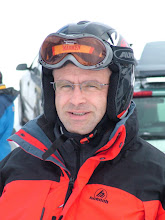Tuesday, March 24, 2009
Schools as Learning Organizations
Tuesday, March 3, 2009
Choosing a Set of Outcomes - Teacher's role

Firstly, in addition to the rigorous subject knowledge and the mastery of the subject area standards, teachers have to understand the characteristics of their school community as well as the local community they serve. In other words, they have to study and understand the local culture. Furthermore, in an outcomes-centered decision-making paradigm, educators need to integrate the philosophy, the mission, and the value- system of their school. In fact, this will be fundamental when defining graduation outcomes, assessments and educational strategies.
Secondly, participating in the process of defining outcomes, teachers need to learn and work collaboratively. They have to develop their own skills of cooperation with colleagues, as well as they should be trained how to reflect creatively on the authenticity of assessments and the effectiveness of their instructional strategies. As a result, teachers will contribute to the achievement of graduation outcomes. In this logic, the specialist’s isolation has to be substituted by cooperative mindset.
Following the outcomes-centered decision-making process, teachers may contemporaneously be professional specialists and educators. Not only will they provide learning achievement, but also they may “customize” their teaching in order to care for the personal growth of their students. So, teachers have to be reflective in their whole process of designing, assessing and deciding on teaching strategies.
Then, the involvement of teachers in the process of choosing outcome as described by Ozar may however be a challenging activity. Given the diversity of teachers in many Catholic schools, or even more generally speaking in Christian schools, to have everybody working with similar understanding of school’s mission might be a great deal. Beyond the possible differences of worldview, there are also the well-worn paths of teaching in every school, which may make difficult to develop a good rational for change.

